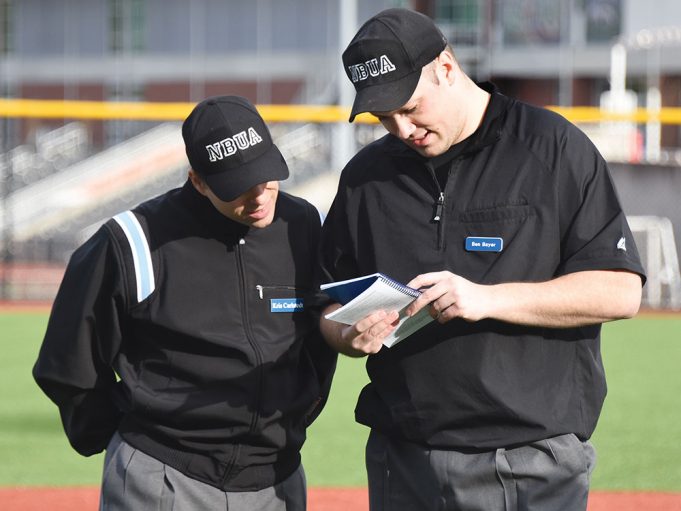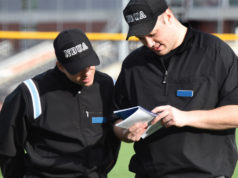The excitement of getting an important assignment can be dampened when you discover that your partner needs help because they may not be at the same skill level as you are.
Still, the game goes on and the officials must put their best effort forward. Here are several situations that can occur or apply in games where you need to step up because you are working with someone you perceive to be a less skilled partner.
Making calls in your partner’s area.
Whether you believe your partner did not see a play or just didn’t make a call for whatever reason, you’ve seen an infraction and decide to make the long-distance call.
While that can be technically correct, you’ve damaged your partner’s ability to call the rest of the game and possibly his or her credibility with both coaches.
Concentrate on making the calls that are your responsibility and don’t try to do the job of multiple officials.
Play coverage.
As officials move up the ladder, they are usually getting their first exposure to working with more officials on the court or field. The first time most baseball or softball umpires work the three-umpire system is in the state tournament. The same goes for a crew of six or seven football officials.
One pregame topic to cover could be, what happens when a play isn’t covered? All umpires need to be aware of what is happening on the field and either alert the partner who’s responsible for the play to cover it or fill the gap and deal with the mechanics flaws in a postgame discussion.
Coaches expect you to change rulings.
By rule in most sports, one official cannot substitute his or her judgment for that of another official.
But if you have definite knowledge that a ruling is incorrect, you can go to that official, provide information and work with him or her to change the call if they are willing to concede the point.
You cannot force the issue, however, and it is never good teamwork to let on that you think your partner has made an error. Keep your demeanor professional and the conversation private.
Remember, you were there once.
One of the most rewarding things to be a part of in officiating is seeing that weaker official have success in a big game and gain confidence. Going into the game with confidence and having a detailed pregame discussion can set a tone that will enable that official to focus on the game and not worry about impressing the coaches, players or you. His or her actions will do that and hopefully, he or she will gain the confidence necessary to face future challenges.
What's Your Call? Leave a Comment:
Note: This article is archival in nature. Rules, interpretations, mechanics, philosophies and other information may or may not be correct for the current year.
This article is the copyright of ©Referee Enterprises, Inc., and may not be republished in whole or in part online, in print or in any capacity without expressed written permission from Referee. The article is made available for educational use by individuals.


















